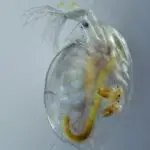Do Flea Collars Prevent Fleas?
While some veterinarians recommend using flea collars to prevent fleas, they aren’t without risk. The collars often contain toxic insecticides that can cause serious health effects for pets. Some are even lethal. Pets who are exposed to these products often suffer from rashes, diarrhea, and vomiting. Worse, some pets have died from the insecticides contained in the flea collars. The chemicals in flea collars are not safe for pets, humans, or children.
Flea collars can protect your pet for up to seven months, but it’s best to use the product properly. The chemicals released by the collar release over time, so if you take the collar off for a long period of time, it won’t be effective.
Some cats are allergic to fleas, and flea collars can cause allergies in your pet. You should never use flea collars on cats that are younger than six months old. They should also not be used on pregnant or nursing cats. Lastly, flea collars can interfere with medications for cats. They can counteract other medications and render them useless. This is why flea collars are often dangerous, even under ideal conditions. And since the products are not safe for all pets, you should always check with your vet before using any product.
Despite the fact that flea collars aren’t always effective, they do offer an inexpensive alternative to chemical treatments. Most experts recommend that you use a combination of flea treatments to ensure your pet’s safety. Flea collars are made of plastic resins that release an insecticide in a thin strip. It works by releasing the pesticide around the head and neck of your pet. The collar is especially effective if your dog spends a lot of time outdoors.








